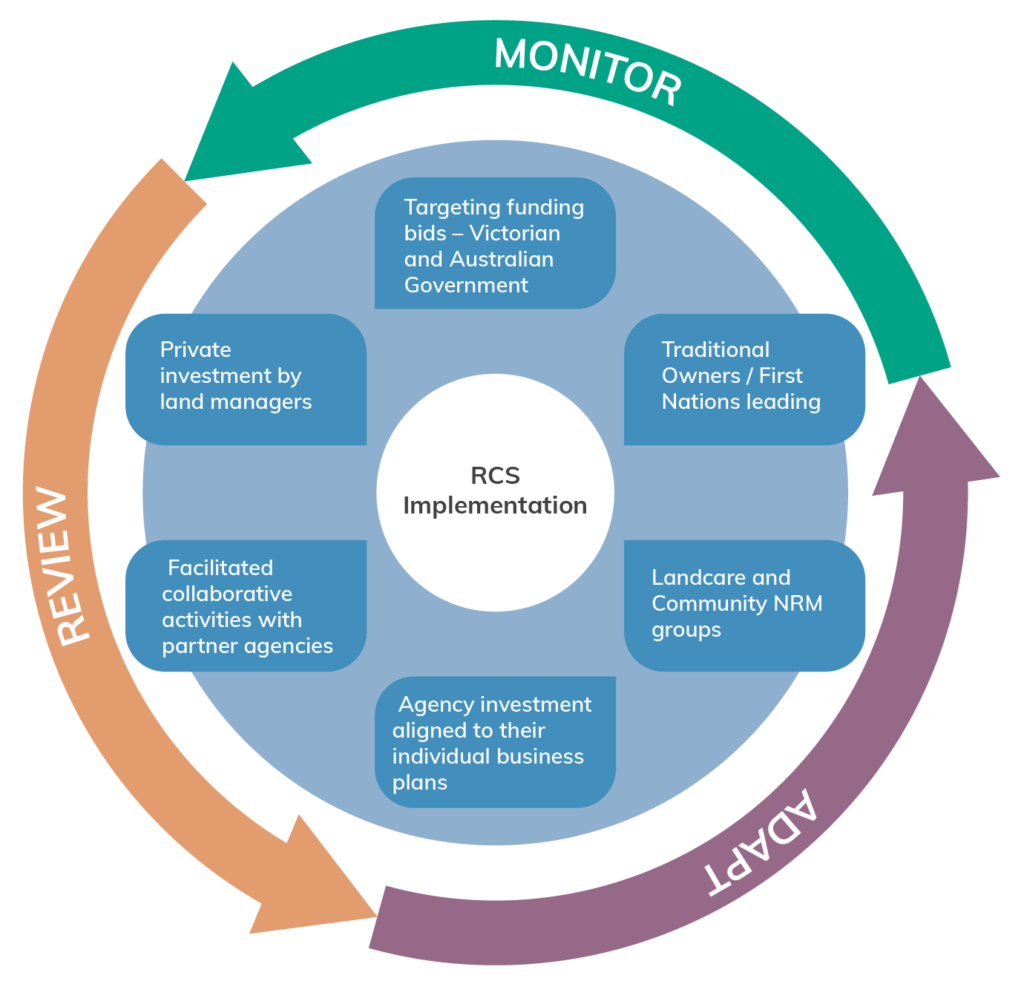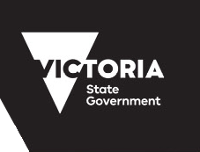The focus on the RCS does not stop once the strategy is updated, with implementation planned for between 2021-27.
An implementation plan will be developed following the approval of the RCS, using the same participation principles that guided the strategy development.
The implementation plan will:
- Plan how outcomes and priority directions will be achieved
- Identify and establish partnerships for collaborative delivery
- Develop a timeline for implementation
- Establish a detailed monitoring and evaluation framework.
The image below describes some of the other mechanisms that will be used for RCS delivery.

The North East CMA will lead the development of the implementation plan and coordinate monitoring and evaluation. Many other partners are involved in RCS implementation as shown in the link below.
Implementation partners
Numerous agencies, organisations, groups and individuals have direct and indirect interest and responsibilities in the management of natural resources for north east Victoria and will co-deliver this RCS.
Partners that currently have a role in NRM in the region and in delivering the RCS include:
Regional NRM agencies, state government authorities and delivery partners
The RCS is used by NRM agencies to guide investment decisions and works programs. These agencies directly or indirectly contribute to the management of some of the region’s most precious places, in partnership with Traditional Owners/First Nations. Regional NRM agencies, state government authorities and delivery partners include:
- North East Catchment Management Authority
- Department of Environment, Land, Water and Planning
- Parks Victoria
- Department of Jobs, Precincts and Regions
- Environment Protection Authority
- North East Water
- Goulburn-Murray Water
- Trust for Nature
- Local government – Rural City of Wangaratta, City of Wodonga, Alpine, Towong, Indigo, Moira, Mansfield and East Gippsland Shire Councils
- VicRoads.
Community
North east Victoria has a diverse collection of active community NRM and landcare groups. These, along with individual land managers, play a role in stewarding the region’s natural resources.
This RCS documents agreed priorities across the region and identifies opportunities to work together to achieve them. The RCS is a tool that community groups and individual land managers can use to guide investment and to prepare grant applications and funding bids.
Australian and Victorian Government NRM grants require applicants to demonstrate linkages to regional strategies.
Traditional Owners/First Nations
Many Traditional Owners/First Nations groups care and connect with Country in north east Victoria and partner in the delivery of the RCS. The region has three Registered Aboriginal Parties – Taungurung Land and Waters Council, Yorta Yorta Nations Aboriginal Corporation, Gunaikurnai Land and Waters Aboriginal Corporation.
A map of the Registered Aboriginal Parties in Victoria can be found here.
Many other Traditional Owners/First Nations groups care for, and have connection to north east Victoria. There is an open approach in implementing the RCS to working with all Traditional Owners/First Nations groups who assert interests and rights in the Country. Some other groups include:
- Dhudhuroa Waywurru Nations Aboriginal Corporation
- Duduroa Dhargal Aboriginal Corporation
- Dalka Warra Mittung Aboriginal Corporation
- Jaithmathang Traditional Ancestral Bloodline Original Owners (TABOO)
- Bangerang Aboriginal Corporation.
Australian Government
Australian Government environment agencies partner in NRM initiatives within the region. Maintaining an NRM Plan is also part of the North East CMA’s obligations as part of the National Landcare Program.
Australian Government agencies that partner in the delivery of the RCS include:
- Department of Agriculture, Water and the Environment
- Murray-Darling Basin Authority.


